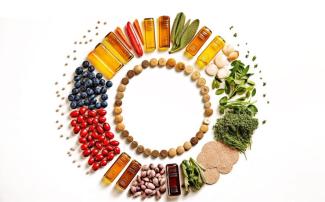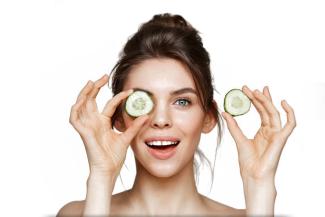
Dry eyes can be uncomfortable, and your diet can play a role in managing this condition. Including certain foods in your diet may help alleviate dry eye symptoms by providing essential nutrients and promoting eye health. Here are some foods and nutrients that can be beneficial for dry eyes:
- Fatty Fish: Fatty fish like salmon, mackerel, and trout are rich in omega-3 fatty acids, which have anti-inflammatory properties and can help reduce dry eye symptoms.
- Flaxseeds and Chia Seeds: These seeds are good sources of alpha-linolenic acid, a type of omega-3 fatty acid that can benefit dry eye sufferers. You can add them to yogurt, smoothies, or oatmeal.
- Nuts and Seeds: Almonds, walnuts, and sunflower seeds contain vitamin E, which may help protect the eyes from dryness and inflammation.
- Leafy Greens: Spinach, kale, and other leafy greens are high in vitamins A and C, which can support eye health and reduce the risk of dry eyes.
- Carrots: Carrots are rich in beta-carotene, which the body converts into vitamin A. This vitamin is essential for maintaining good eye health and preventing dryness.
- Citrus Fruits: Oranges, lemons, and grapefruits are excellent sources of vitamin C, which has antioxidant properties and may help reduce the risk of eye dryness.
- Eggs: Eggs contain lutein and zeaxanthin, which are carotenoids that can help protect the eyes from conditions like dry eye syndrome.
- Water: Staying well-hydrated is essential for preventing dry eyes. Drink an adequate amount of water throughout the day to maintain proper eye moisture.
- Whole Grains: Whole grains like brown rice and quinoa contain vitamin E and zinc, both of which are beneficial for eye health.
- Dairy Products: Low-fat dairy products, such as yogurt and milk, contain vitamin A and zinc, which can help maintain eye health.
- Supplements: In some cases, your healthcare provider may recommend supplements containing omega-3 fatty acids, vitamin D, or other nutrients to alleviate dry eye symptoms.
It's important to maintain a balanced and varied diet to ensure you're getting a wide range of nutrients that support eye health. Additionally, if you have chronic dry eye symptoms, it's a good idea to consult an eye specialist or healthcare provider for a thorough evaluation and personalized recommendations for managing your condition. They may also recommend artificial tears or other treatments as part of your dry eye management plan.






